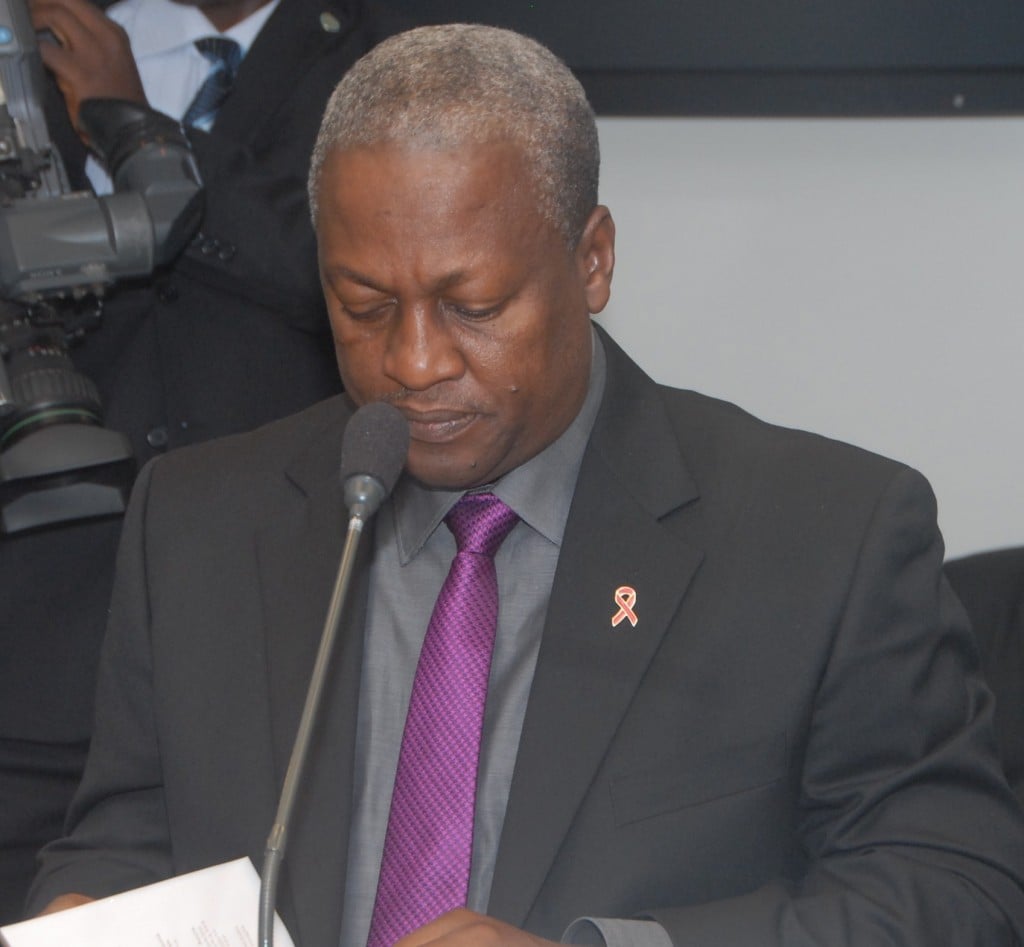
President of Ghana John Mahama, who was sworn in following the death of his predecessor in accordance with the country’s constitution. His ascension to the presidency was not contested or questioned. Photo credit: Embassy of Ghana in U.S.
So often the news, and commentary on it, focuses on when things go wrong. Things going wrong usually involve drama and confrontation, which makes for interesting stories. I am have been guilty of contributing to this trend myself in commenting on when democracy goes wrong, i.e., election fraud and impeachments.
But recently I was reminded that sometimes things going exactly according to plan can be exceptional too (and newsworthy). That brings me to Africa, the last area of the world I have yet to cover in this blog.
Last week the president of Ghana, John Atta Mills, died. Shortly thereafter, Mills’ VP John Mahama, was sworn in as the uncontested new president, which is exactly what was supposed to happen according to Ghana’s constitution.
So why should we care that what was expected and supposed to happen, happened? In a region where upheaval and turmoil (political and otherwise) were the norm, having people unquestionably accept a constitutionally prescribed transfer of power is indeed a big deal. In other words, it shows democracy is winning.
BBC’s Mark Doyle comments about Ghana,
But the smooth handover to a successor — John Mahama — highlights how far Ghana has gone on the road to democracy. In a less democratic era — in the 1980s or the 1990s — the death of a Ghanaian leader would have caused fear and foreboding: Was the death suspicious? Who would take over? Would the army step in?
But it’s a measure of how the democratic process has become “normal” in Ghana that Mr Mahama — the vice-president — was swiftly sworn in. There was no question of anything other than this happening.
When no one in a country questions democracy, democracy is working.
Perhaps even more remarkable is the smooth transition in power in Malawi earlier this year. After President Bingu wa Mutharika died, his VP Joyce Banda became the 2nd female president in African history. While some have expressed opposition and questioned her ability to lead, at least to this point Banda has retained the presidency, with the country adhering to constitutional laws of succession.
Banda has not been afraid to take unpopular stances. She objected to then-President Mutharika’s actions to ensure his brother succeed him as president. Outraged, Mutharika threw her out of the political party both had represented when elected, and there were calls for her resignation. Banda stood firm, reacted by forming her own party, and remained VP. According to the Malawi constitution, since she was elected not appointed, Mutharika could not remove her from office without proper cause. Thus democracy prevailed over political adversity.
Banda has also gone on the offensive to clean up Malawi’s government in her first few months in power. She fired the state chief of police after a police clash with protesters left 19 dead and dismissed government communication officials who questioned her right to be president. Banda has spearheaded sweeping economic reforms, including getting rid of the presidential luxury jet as part of cost-cutting measures. Her actions spurred the IMF to offer a $157 million loan to Malawi; the group and many other foreign lenders had removed financial support to the poverty-stricken nation under Mutharika.
So in a region where political strife, coups and brutal civil wars had been the rule and democracy the exception, how can you tell that democracy is being accepted? When, after the death of a president, nothing newsworthy happens at all.